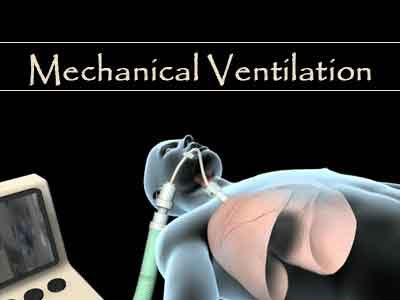- Home
- Editorial
- News
- Practice Guidelines
- Anesthesiology Guidelines
- Cancer Guidelines
- Cardiac Sciences Guidelines
- Critical Care Guidelines
- Dentistry Guidelines
- Dermatology Guidelines
- Diabetes and Endo Guidelines
- Diagnostics Guidelines
- ENT Guidelines
- Featured Practice Guidelines
- Gastroenterology Guidelines
- Geriatrics Guidelines
- Medicine Guidelines
- Nephrology Guidelines
- Neurosciences Guidelines
- Obs and Gynae Guidelines
- Ophthalmology Guidelines
- Orthopaedics Guidelines
- Paediatrics Guidelines
- Psychiatry Guidelines
- Pulmonology Guidelines
- Radiology Guidelines
- Surgery Guidelines
- Urology Guidelines
30 min pressure support ventilation better extubation strategy in patients on mechanical ventilation

SPAIN: Daily spontaneous breathing trials (SBTs) are the best approach to determine if the patient is ready for extubation --disconnection from the mechanical ventilation. A recent study, published in the renowned journal JAMA has found that a spontaneous breathing trial consisting of 30 minutes of pressure support ventilation, compared with 2 hours of T-piece ventilation resulted in higher rates of successful extubation in patients on mechanical ventilation.
The findings support the use of a shorter, less demanding ventilation strategy for spontaneous breathing trials.
Though daily spontaneous breathing trials (SBTs) is the best approach to determine the readiness of the patients for extubation, its mode and duration remain controversial. Carles Subirà, Althaia Xarxa Assistencial Universitària de Manresa, Manresa, Spain, and colleagues evaluated the effect of an SBT consisting of 30 minutes of pressure support ventilation (an approach that is less demanding for patients) vs an SBT consisting of 2 hours of T-piece ventilation (an approach that is more demanding for patients) on rates of successful extubation.
For the purpose, they conducted a randomized clinical trial from January 2016 to April 2017 among 1153 adults deemed ready for weaning after at least 24 hours of mechanical ventilation at 18 intensive care units in Spain. Follow-up ended in July 2017. The patients were randomized to undergo 2-hour T-piece SBT (n = 578) or a 30-minute SBT with 8-cm H2O pressure support ventilation (n = 557).
The primary outcome was successful extubation (remaining free of mechanical ventilation 72 hours after first SBT). Secondary outcomes were reintubation among patients extubated after SBT; intensive care unit and hospital lengths of stay; and hospital and 90-day mortality.
Also Read: New guidelines for discontinuing mechanical ventilation in ICU
Key findings of the study include:
- Among 1153 patients who were randomized (mean age, 62.2 [SD, 15.7] years; 428 [37.1%] women), 1018 (88.3%) completed the trial.
- Successful extubation occurred in 473 patients (82.3%) in the pressure support ventilation group and 428 patients (74.0%) in the T-piece group.
- Among secondary outcomes, for the pressure support ventilation group vs the T-piece group, respectively, reintubation was 11.1% vs 11.9%, median intensive care unit length of stay was 9 days vs 10 days, median hospital length of stay was 24 days vs 24 days, hospital mortality was 10.4% vs 14.9%, and 90-day mortality was 13.2% vs 17.3%.
Also Read: Chest x-rays overused on ventilation patients despite ACR guidelines
"Among patients receiving mechanical ventilation, a spontaneous breathing trial consisting of 30 minutes of pressure support ventilation, compared with 2 hours of T-piece ventilation, led to significantly higher rates of successful extubation. These findings support the use of a shorter, less demanding ventilation strategy for spontaneous breathing trials," concluded the authors.
For detailed study log on to doi:10.1001/jama.2019.7234

Disclaimer: This site is primarily intended for healthcare professionals. Any content/information on this website does not replace the advice of medical and/or health professionals and should not be construed as medical/diagnostic advice/endorsement or prescription. Use of this site is subject to our terms of use, privacy policy, advertisement policy. © 2020 Minerva Medical Treatment Pvt Ltd